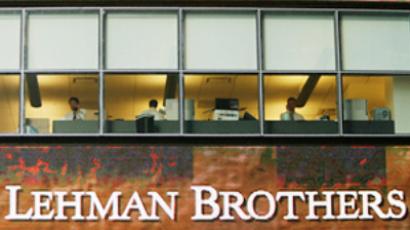Auto market pulls into slow lane as economy slams on the brakes
The booming auto sales which pushed the Russian market into the realms of the worlds largest came to a screeching halt with the economic downturn, with the government looking at measures to spur buying once again.
Soviet car brands like Volga and Lada may be still proudly trundling the roads of Russia – but a lot has changed since Soviet days. Sales of foreign car brands had been rising steadily before the crisis making Russia the biggest car market in Europe.
In the first half of 2008 Russia overtook Germany in the number of new car registrations, and that steady acceleration was driven by the rising availability of finance, the wealth of an oil fueled economy and – last but not least – the mentality of Russian buyers.
A car in Russia is perceived to be more than just a vehicle – it's a status symbol. People are ready to fork out for a flashy, big and costly vehicle even at the expense of other pleasures, with the comments of Russian drivers typifying the attitude.
“Your car is your lifestyle. I am young. And I want my car to be flashy, fast and a bit playful. So that girls like it.”
“I love this car. It has all what it takes. It's fully electronic. I have a big belly you see so this Russian Volga is a good fit for me.”
“I have bought an offroad because you sit high and see well. But first of all it’s about the safety of a big car. And you can park anywhere even in the middle of a snowhill.”
In 2009 car sales in the country tumbled 50% and are unlikely to pick up any time soon despite state help. The government offered subsidies for new cars as well as cash-for-scrap schemes but Ivan Bonchev, Associate Director at Ernst and Young says they had minimal effect.
“Despite the fact that some measures were introduced to stimulate the market, such as subsidies on cars produced in Russia, the effect was quite limited and only about 60 thousand vehicles were bought using the state subsidies.”
Russia may have failed to lay its hands on Opel and its technology but was promised assistance from Renault, which holds a 25% stake in Russia's struggling car producer – Avtovaz
Industry analysts predict the next development could be the rise of local component industry serving foreign brands. And with the roar of the crisis fading away, car analysts say the Russian car market could claim third place by 2012 – after the US and China.













